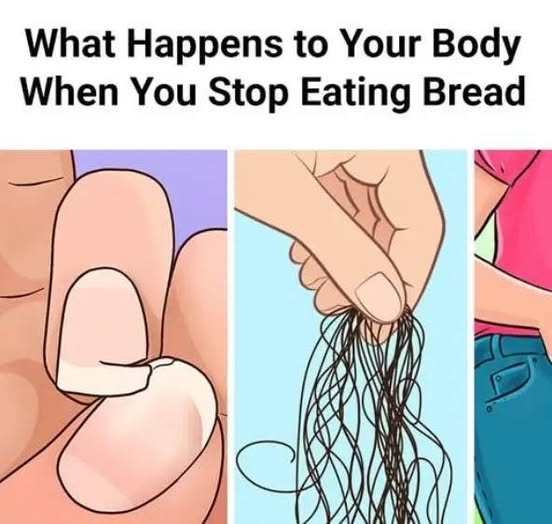Bread has been a staple in diets around the world for centuries, but in recent years, many people have started cutting it out of their meals. Whether it’s for health reasons, weight loss, or dietary preferences like low-carb or gluten-free diets, eliminating bread can have a significant impact on your body. But what exactly happens when you stop eating bread? Let’s explore the surprising effects – both positive and negative – and what you need to know before making the switch.
Why Do People Stop Eating Bread?
Before diving into the effects, it’s important to understand why people choose to eliminate bread from their diets. Common reasons include:
Weight Loss Goals: Bread is often high in carbs and calories, which can contribute to weight gain if consumed in excess.
Gluten Sensitivity or Celiac Disease: For those with gluten-related disorders, avoiding bread is essential.
Low-Carb or Keto Diets: These diets restrict carb intake, and bread is a major source of carbohydrates.
Digestive Issues: Some people find that bread causes bloating or discomfort.
What Happens to Your Body When You Stop Eating Bread?
1. You May Lose Weight (Initially)
When you stop eating bread, especially refined white bread, you’re cutting out a significant source of calories and carbs. This can lead to initial weight loss, particularly water weight, as your body depletes its glycogen stores. However, long-term weight loss depends on your overall diet and lifestyle.
2. Your Energy Levels Might Fluctuate
Bread is a primary source of carbohydrates, which are your body’s main energy source. When you stop eating bread, you may experience fatigue or low energy, especially if you don’t replace those carbs with other energy-rich foods like fruits, vegetables, or whole grains.
3. Your Digestive System Could Change
Bread, especially whole-grain varieties, is a good source of fiber. If you stop eating bread without replacing it with other high-fiber foods, you might experience constipation or digestive slowdown. On the flip side, some people find that cutting out bread reduces bloating and improves digestion, particularly if they’re sensitive to gluten or refined carbs.
4. Your Blood Sugar Levels May Stabilize
Refined bread can cause spikes in blood sugar levels, followed by crashes. By eliminating bread, especially white bread, you may notice more stable blood sugar levels and reduced cravings for sugary snacks.
5. You Might Miss Out on Key Nutrients
Bread, particularly whole-grain bread, is a good source of essential nutrients like B vitamins, iron, and fiber. If you stop eating bread without finding alternative sources of these nutrients, you could risk deficiencies.
6. Your Cravings May Intensify (At First)
Bread is a comfort food for many, and cutting it out can lead to cravings, especially in the first few weeks. Over time, these cravings typically subside as your body adjusts to a lower-carb diet.
7. Your Gut Health Could Be Affected
Whole-grain bread contains prebiotics, which feed the good bacteria in your gut. If you stop eating bread, you might need to incorporate other prebiotic-rich foods like bananas, onions, and garlic to maintain a healthy gut microbiome.
Tips for Cutting Out Bread the Healthy Way
If you’re considering eliminating bread from your diet, here’s how to do it without compromising your health:
Choose Whole Foods: Replace bread with nutrient-dense alternatives like quinoa, sweet potatoes, or leafy greens.
Focus on Fiber: Incorporate high-fiber foods like fruits, vegetables, nuts, and seeds to support digestion.
Monitor Your Energy Levels: Ensure you’re getting enough carbs from other sources to maintain energy.
Read Labels: Many processed foods contain hidden sources of gluten or refined carbs, so check ingredient lists carefully.
Consult a Professional: If you’re unsure about making dietary changes, consult a nutritionist or dietitian for personalized advice.
The Bottom Line
Cutting out bread can have both positive and negative effects on your body, depending on your overall diet and health goals. While it may help with weight loss, blood sugar control, and reducing bloating for some, it’s important to replace the nutrients and fiber that bread provides to avoid deficiencies and digestive issues.
FAQs
Q: Will I lose weight if I stop eating bread?
A: You may lose weight initially, especially water weight, but long-term weight loss depends on your overall calorie intake and activity level.
Continued on next page
ADVERTISEMENT

